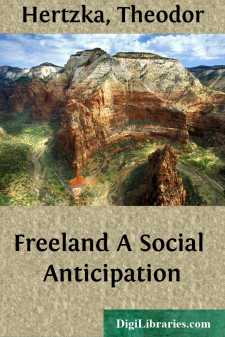Categories
- Antiques & Collectibles 13
- Architecture 36
- Art 48
- Bibles 22
- Biography & Autobiography 815
- Body, Mind & Spirit 144
- Business & Economics 28
- Children's Books 18
- Children's Fiction 14
- Computers 4
- Cooking 94
- Crafts & Hobbies 4
- Drama 346
- Education 58
- Family & Relationships 59
- Fiction 11834
- Games 19
- Gardening 17
- Health & Fitness 34
- History 1378
- House & Home 1
- Humor 147
- Juvenile Fiction 1873
- Juvenile Nonfiction 202
- Language Arts & Disciplines 89
- Law 16
- Literary Collections 686
- Literary Criticism 179
- Mathematics 13
- Medical 41
- Music 40
- Nature 179
- Non-Classifiable 1768
- Performing Arts 7
- Periodicals 1453
- Philosophy 65
- Photography 2
- Poetry 896
- Political Science 203
- Psychology 44
- Reference 154
- Religion 515
- Science 126
- Self-Help 85
- Social Science 83
- Sports & Recreation 34
- Study Aids 3
- Technology & Engineering 59
- Transportation 23
- Travel 463
- True Crime 29
Our website is made possible by displaying online advertisements to our visitors.
Please consider supporting us by disabling your ad blocker.
Freeland A Social Anticipation
by: Theodor Hertzka
Description:
Excerpt
AUTHOR'S PREFACE
The economic and social order of the modern world exhibits a strange enigma, which only a prosperous thoughtlessness can regard with indifference or, indeed, without a shudder. We have made such splendid advances in art and science that the unlimited forces of nature have been brought into subjection, and only await our command to perform for us all our disagreeable and onerous tasks, and to wring from the soil and prepare for use whatever man, the master of the world, may need. As a consequence, a moderate amount of labour ought to produce inexhaustible abundance for everyone born of woman; and yet all these glorious achievements have not--as Stuart Mill forcibly says--been able to mitigate one human woe. And, what is more, the ever-increasing facility of producing an abundance has proved a curse to multitudes who lack necessaries because there exists no demand for the many good and useful things which they are able to produce. The industrial activity of the present day is a ceaseless confused struggle with the various symptoms of the dreadful evil known as 'over-production.' Protective duties, cartels and trusts, guild agitations, strikes--all these are but the desperate resistance offered by the classes engaged in production to the inexorable consequences of the apparently so absurd, but none the less real, phenomenon that increasing facility in the production of wealth brings ruin and misery in its train.
That science stands helpless and perplexed before this enigma, that no beam of light has yet penetrated and dispelled the gloom of this--the social--problem, though that problem has exercised the minds of the noblest and best of to-day, is in part due to the fact that the solution has been sought in a wrong direction.
Let us see, for example, what Stuart Mill says upon this subject: 'I looked forward ... to a future' ... whose views (and institutions) ... shall be 'so firmly grounded in reason and in the true exigencies of life that they shall not, like all former and present creeds, religious, ethical, and political, require to be periodically thrown off and replaced by others.'
Autobiography, p. 166.Yet more plainly does Laveleye express himself in the same sense at the close of his book 'De la Propriété': 'There is an order of human affairs which is the best ... God knows it and wills it. Man must discover and introduce it.'
It is therefore an absolutely best, eternal order which both are waiting for; although, when we look more closely, we find that both ought to know they are striving after the impossible. For Mill, a few lines before the above remarkable passage, points out that all human things are in a state of constant flux; and upon this he bases his conviction that existing institutions can be only transitory. Therefore, upon calm reflection, he would be compelled to admit that the same would hold in the future, and that consequently unchangeable human institutions will never exist. And just so must we suppose that Laveleye, with his 'God knows it and wills it,' would have to admit that it could not be man's task either to discover or to introduce the absolutely best order known only to God....


